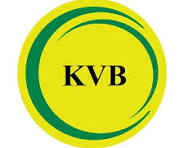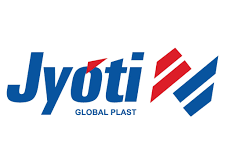The workplace has undergone one of the most profound transformations in modern history. What was once a reactive shift to remote operations during the pandemic has now solidified into a permanent feature of enterprise strategy. Flexibility has become a currency of choice for employees, and organizations that fail to embed it into their DNA risk losing both talent and competitive edge. According to a 2025 Pew Research survey, nearly three-quarters of hybrid workers say they would prefer to continue in a flexible model rather than return to office-dominated routines.
But while employees have embraced remote and hybrid work, enterprises are still grappling with the mechanics of making it sustainable. The question is no longer where work gets done but how it flows. Work has become more digital, more distributed, and more demanding, forcing leaders to rethink not just tools but the very architecture of collaboration.
The Complexity of Digital Work
A glance at today’s digital workplace reveals both progress and pitfalls. On average, companies are juggling more than 100 applications to manage collaboration, communication, and business processes. The result is a paradox: more tools, yet more fragmentation. Employees are flooded with messages – Microsoft data shows the typical knowledge worker now faces 250 emails and 150 chat messages per day, alongside back-to-back virtual meetings. The promise of connectivity too often turns into what researchers call “digital debt” that is an overwhelming volume of unstructured communication that slows decisions and saps energy.
AI as a Workflow Multiplier
Technology, however, is also delivering solutions. Generative AI, once a novelty, is becoming a genuine force multiplier. Microsoft’s research into early AI copilots found that 70% of users reported higher productivity, while tasks were completed almost 30% faster. For remote-first organizations, this is more than a productivity boost; it’s a chance to reset workflows. AI can summarize sprawling meetings, draft first versions of reports, and retrieve knowledge instantly from oceans of files, transforming the way distributed teams collaborate. Yet the key lies not in adopting AI for its own sake but in weaving it into business processes with clear governance and intent.
Security Without Borders
Security is another pillar of this reinvention. The perimeter of work has dissolved; employees are connecting from homes, cafes, and co-working spaces, often across unsecured networks. The average cost of a data breach now sits at $4.88 million, a sobering figure that highlights the risks of fragmented collaboration environments. Zero-trust security is anchored in strong identity verification, least-privilege access, and smart data controls has shifted from best practice to baseline requirement. In a remote-first world, resilience and security are inseparable.
Rethinking What Productivity Means
This shift also demands a cultural rewire. The traditional obsession with presenteeism including hours online, green status lights, meeting attendance, no longer reflects productivity. Instead, forward-looking enterprises are measuring outcomes: decision cycle times, project throughput, knowledge retrieval efficiency, and uninterrupted focus hours. These metrics tell a truer story of whether teams are working effectively in a distributed model.
A Blueprint for the Future of Work
What is clear from the current work trends is that remote-first is not a compromise; it is an opportunity. It’s a chance to reimagine the enterprise around principles of clarity, flexibility, and trust. Organizations that embrace asynchronous communication, deploy AI as a co-pilot rather than a crutch, streamline their tool ecosystems, and build security into every interaction will do more than survive the shift, they will thrive in it.
The future of work is not about replicating the office online. It’s about orchestrating new workflows that reflect the realities of a digital, distributed world. Remote-first can unlock not just productivity but creativity, resilience, and growth. The enterprises that seize this moment will not only meet the expectations of today’s workforce but also set the standard for the workplaces of tomorrow.
 Newspatrolling.com News cum Content Syndication Portal Online
Newspatrolling.com News cum Content Syndication Portal Online







